afterLoad (456.22KB) (3.52ms)
afterInitialise (1.27MB) (30.16ms)
afterRoute (840.56KB) (16.22ms)
beforeRenderComponent com_tags (21.36KB) (198μs)
afterRenderComponent com_tags (1.85MB) (131ms)
afterDispatch (65.4KB) (10.41ms)
beforeRenderRawModule mod_articles_category (READ MORE...) (440.48KB) (20.28ms)
Before Access::preloadComponents (all components) (114.9KB) (356μs)
After Access::preloadComponents (all components) (103.05KB) (5.8ms)
Before Access::getAssetRules (id:8 name:com_content) (840B) (14μs)
After Access::getAssetRules (id:8 name:com_content) (7.05KB) (35μs)
afterRenderRawModule mod_articles_category (READ MORE...) (18.38KB) (205ms)
beforeRenderRawModule mod_custom (BOOST YOUR IMMUNE DEFENSE) (6.45KB) (25μs)
afterRenderRawModule mod_custom (BOOST YOUR IMMUNE DEFENSE) (3.8KB) (163μs)
beforeRenderRawModule mod_tags_popular (Search) (2.36KB) (15μs)
afterRenderRawModule mod_tags_popular (Search) (42.38KB) (320ms)
beforeRenderRawModule mod_custom (Get additionel and more detailed knowledge ) (816B) (22μs)
afterRenderRawModule mod_custom (Get additionel and more detailed knowledge ) (1.55KB) (40μs)
beforeRenderRawModule mod_custom (Overview of vitamins, minerals, and essential fatty acids) (768B) (10μs)
afterRenderRawModule mod_custom (Overview of vitamins, minerals, and essential fatty acids) (960B) (20μs)
beforeRenderRawModule mod_custom (Q10 goes by many names) (608B) (9μs)
afterRenderRawModule mod_custom (Q10 goes by many names) (928B) (16μs)
beforeRenderRawModule mod_custom (Check this before you buy a Q10 product) (752B) (8μs)
afterRenderRawModule mod_custom (Check this before you buy a Q10 product) (944B) (17μs)
beforeRenderRawModule mod_custom (Are you taking supplements) (736B) (8μs)
afterRenderRawModule mod_custom (Are you taking supplements) (1.03KB) (15μs)
beforeRenderRawModule mod_custom (Weight loss that works) (736B) (8μs)
afterRenderRawModule mod_custom (Weight loss that works) (1.03KB) (16μs)
beforeRenderRawModule mod_custom (Antiaging) (720B) (8μs)
afterRenderRawModule mod_custom (Antiaging) (912B) (15μs)
beforeRenderRawModule mod_menu (Are you getting enough vitamins and minerals?) (2.5KB) (10μs)
afterRenderRawModule mod_menu (Are you getting enough vitamins and minerals?) (22.39KB) (2.63ms)
beforeRenderRawModule mod_menu (The key to increased well-being) (736B) (23μs)
afterRenderRawModule mod_menu (The key to increased well-being) (17.83KB) (252μs)
beforeRenderRawModule mod_menu (Did you know.....) (720B) (17μs)
afterRenderRawModule mod_menu (Did you know.....) (25.52KB) (260μs)
beforeRenderRawModule mod_custom (Useful Links) (1.06KB) (12μs)
afterRenderRawModule mod_custom (Useful Links) (1.02KB) (28μs)
beforeRenderRawModule mod_custom (Chronic fatigue tied Alan to his bed but Q10 capsules saved him:) (244.28KB) (7.94ms)
afterRenderRawModule mod_custom (Chronic fatigue tied Alan to his bed but Q10 capsules saved him:) (1.06KB) (36μs)
beforeRenderModule mod_custom (Chronic fatigue tied Alan to his bed but Q10 capsules saved him:) (768B) (4μs)
afterRenderModule mod_custom (Chronic fatigue tied Alan to his bed but Q10 capsules saved him:) (1.3KB) (50μs)
beforeRenderRawModule mod_custom (Cholesterol-lowering without side effects:) (368B) (12μs)
afterRenderRawModule mod_custom (Cholesterol-lowering without side effects:) (1.06KB) (19μs)
beforeRenderModule mod_custom (Cholesterol-lowering without side effects:) (752B) (2μs)
afterRenderModule mod_custom (Cholesterol-lowering without side effects:) (1.28KB) (26μs)
beforeRenderModule mod_articles_category (READ MORE...) (20.93KB) (5.37ms)
afterRenderModule mod_articles_category (READ MORE...) (1.25KB) (51μs)
beforeRenderModule mod_custom (BOOST YOUR IMMUNE DEFENSE) (6.81KB) (14μs)
afterRenderModule mod_custom (BOOST YOUR IMMUNE DEFENSE) (1.28KB) (23μs)
beforeRenderModule mod_tags_popular (Search) (1.98KB) (11μs)
afterRenderModule mod_tags_popular (Search) (1.27KB) (21μs)
beforeRenderModule mod_custom (Get additionel and more detailed knowledge ) (1.17KB) (9μs)
afterRenderModule mod_custom (Get additionel and more detailed knowledge ) (1.3KB) (19μs)
beforeRenderModule mod_custom (Overview of vitamins, minerals, and essential fatty acids) (384B) (8μs)
afterRenderModule mod_custom (Overview of vitamins, minerals, and essential fatty acids) (1.31KB) (18μs)
beforeRenderModule mod_custom (Q10 goes by many names) (208B) (8μs)
afterRenderModule mod_custom (Q10 goes by many names) (1.27KB) (17μs)
beforeRenderModule mod_custom (Check this before you buy a Q10 product) (352B) (8μs)
afterRenderModule mod_custom (Check this before you buy a Q10 product) (1.28KB) (18μs)
beforeRenderModule mod_custom (Are you taking supplements) (352B) (8μs)
afterRenderModule mod_custom (Are you taking supplements) (1.28KB) (18μs)
beforeRenderModule mod_custom (Weight loss that works) (336B) (8μs)
afterRenderModule mod_custom (Weight loss that works) (1.27KB) (17μs)
beforeRenderModule mod_custom (Antiaging) (336B) (8μs)
afterRenderModule mod_custom (Antiaging) (3.77KB) (18μs)
beforeRenderModule mod_menu (Are you getting enough vitamins and minerals?) (2.13KB) (10μs)
afterRenderModule mod_menu (Are you getting enough vitamins and minerals?) (1.3KB) (17μs)
beforeRenderModule mod_menu (The key to increased well-being) (352B) (9μs)
afterRenderModule mod_menu (The key to increased well-being) (1.28KB) (17μs)
beforeRenderModule mod_menu (Did you know.....) (336B) (9μs)
afterRenderModule mod_menu (Did you know.....) (1.27KB) (18μs)
beforeRenderModule mod_custom (Useful Links) (1.44KB) (8μs)
afterRenderModule mod_custom (Useful Links) (1.27KB) (17μs)
beforeRenderRawModule mod_menu (Main Menu - English) (29.14KB) (2.52ms)
afterRenderRawModule mod_menu (Main Menu - English) (186.95KB) (2.93ms)
beforeRenderModule mod_menu (Main Menu - English) (720B) (5μs)
afterRenderModule mod_menu (Main Menu - English) (4.86KB) (52μs)
beforeRenderRawModule mod_languages (Sprogskift) (3.94KB) (19μs)
afterRenderRawModule mod_languages (Sprogskift) (27.89KB) (9.61ms)
beforeRenderModule mod_languages (Sprogskift) (720B) (5μs)
afterRenderModule mod_languages (Sprogskift) (5.31KB) (19μs)
beforeRenderRawModule mod_finder () (6.34KB) (10μs)
afterRenderRawModule mod_finder () (64.59KB) (10.55ms)
beforeRenderModule mod_finder () (704B) (4μs)
afterRenderModule mod_finder () (3.29KB) (30μs)
beforeRenderRawModule mod_custom () (6.62KB) (130μs)
afterRenderRawModule mod_custom () (22.66KB) (5.06ms)
beforeRenderModule mod_custom () (704B) (5μs)
afterRenderModule mod_custom () (1.23KB) (46μs)
beforeRenderRawModule mod_menu (Main Menu - English) (5.07KB) (211μs)
afterRenderRawModule mod_menu (Main Menu - English) (6.3KB) (664μs)
beforeRenderModule mod_menu (Main Menu - English) (720B) (3μs)
afterRenderModule mod_menu (Main Menu - English) (1.25KB) (40μs)
beforeRenderRawModule mod_languages (Sprogskift Mobil) (912B) (16μs)
afterRenderRawModule mod_languages (Sprogskift Mobil) (3.89KB) (7.63ms)
beforeRenderModule mod_languages (Sprogskift Mobil) (720B) (6μs)
afterRenderModule mod_languages (Sprogskift Mobil) (1.27KB) (31μs)
beforeRenderRawModule mod_finder () (2.3KB) (11μs)
afterRenderRawModule mod_finder () (6.29KB) (8.8ms)
beforeRenderModule mod_finder () (704B) (6μs)
afterRenderModule mod_finder () (1.23KB) (47μs)
beforeRenderRawModule mod_custom () (8.66KB) (164μs)
afterRenderRawModule mod_custom () (904B) (126μs)
beforeRenderModule mod_custom () (704B) (2μs)
afterRenderModule mod_custom () (2.43KB) (23μs)
beforeRenderRawModule mod_custom () (688B) (71μs)
afterRenderRawModule mod_custom () (896B) (85μs)
beforeRenderModule mod_custom () (704B) (2μs)
afterRenderModule mod_custom () (2.71KB) (20μs)
afterRender (269.35KB) (19.51ms)
| 1 x afterRenderRawModule mod_tags_popular (Search) (42.38KB) (38.6%) | 320.39ms |
| 1 x afterRenderRawModule mod_articles_category (READ MORE...) (18.38KB) (24.74%) | 205.37ms |
| 1 x afterRenderComponent com_tags (1.85MB) (15.77%) | 130.91ms |
| 1 x afterInitialise (1.27MB) (3.63%) | 30.16ms |
| 1 x beforeRenderRawModule mod_articles_category (READ MORE...) (440.48KB) (2.44%) | 20.28ms |
| 1 x afterRender (269.35KB) (2.35%) | 19.51ms |
| 1 x afterRoute (840.56KB) (1.95%) | 16.22ms |
| 1 x afterRenderRawModule mod_finder () (64.59KB) (1.27%) | 10.55ms |
| 1 x afterDispatch (65.4KB) (1.25%) | 10.41ms |
| 1 x afterRenderRawModule mod_languages (Sprogskift) (27.89KB) (1.16%) | 9.61ms |
| 1 x afterRenderRawModule mod_finder () (6.29KB) (1.06%) | 8.80ms |
| 1 x beforeRenderRawModule mod_custom (Chronic fatigue tied Alan to his bed but Q10 capsules saved him:) (244.28KB) (0.96%) | 7.94ms |
| 1 x afterRenderRawModule mod_languages (Sprogskift Mobil) (3.89KB) (0.92%) | 7.63ms |
| 1 x After Access::preloadComponents (all components) (103.05KB) (0.7%) | 5.80ms |
| 1 x beforeRenderModule mod_articles_category (READ MORE...) (20.93KB) (0.65%) | 5.37ms |
| 1 x afterRenderRawModule mod_custom () (22.66KB) (0.61%) | 5.06ms |
| 1 x afterLoad (456.22KB) (0.42%) | 3.52ms |
| 1 x afterRenderRawModule mod_menu (Main Menu - English) (186.95KB) (0.35%) | 2.93ms |
| 1 x afterRenderRawModule mod_menu (Are you getting enough vitamins and minerals?) (22.39KB) (0.32%) | 2.63ms |
| 1 x beforeRenderRawModule mod_menu (Main Menu - English) (29.14KB) (0.3%) | 2.52ms |
| 1 x afterRenderRawModule mod_menu (Main Menu - English) (6.3KB) (0.08%) | 664μs |
| 1 x Before Access::preloadComponents (all components) (114.9KB) (0.04%) | 356μs |
| 1 x afterRenderRawModule mod_menu (Did you know.....) (25.52KB) (0.03%) | 260μs |
| 1 x afterRenderRawModule mod_menu (The key to increased well-being) (17.83KB) (0.03%) | 252μs |
| 1 x beforeRenderRawModule mod_menu (Main Menu - English) (5.07KB) (0.03%) | 211μs |
| 1 x beforeRenderComponent com_tags (21.36KB) (0.02%) | 198μs |
| 1 x beforeRenderRawModule mod_custom () (8.66KB) (0.02%) | 164μs |
| 1 x afterRenderRawModule mod_custom (BOOST YOUR IMMUNE DEFENSE) (3.8KB) (0.02%) | 163μs |
| 1 x beforeRenderRawModule mod_custom () (6.62KB) (0.02%) | 130μs |
| 1 x afterRenderRawModule mod_custom () (904B) (0.02%) | 126μs |
| 1 x afterRenderRawModule mod_custom () (896B) (0.01%) | 85μs |
| 1 x beforeRenderRawModule mod_custom () (688B) (0.01%) | 71μs |
| 1 x afterRenderModule mod_menu (Main Menu - English) (4.86KB) (0.01%) | 52μs |
| 1 x afterRenderModule mod_articles_category (READ MORE...) (1.25KB) (0.01%) | 51μs |
| 1 x afterRenderModule mod_custom (Chronic fatigue tied Alan to his bed but Q10 capsules saved him:) (1.3KB) (0.01%) | 50μs |
| 1 x afterRenderModule mod_finder () (1.23KB) (0.01%) | 47μs |
| 1 x afterRenderModule mod_custom () (1.23KB) (0.01%) | 46μs |
| 1 x afterRenderRawModule mod_custom (Get additionel and more detailed knowledge ) (1.55KB) (0%) | 40μs |
| 1 x afterRenderModule mod_menu (Main Menu - English) (1.25KB) (0%) | 40μs |
| 1 x afterRenderRawModule mod_custom (Chronic fatigue tied Alan to his bed but Q10 capsules saved him:) (1.06KB) (0%) | 36μs |
| 1 x After Access::getAssetRules (id:8 name:com_content) (7.05KB) (0%) | 35μs |
| 1 x afterRenderModule mod_languages (Sprogskift Mobil) (1.27KB) (0%) | 31μs |
| 1 x afterRenderModule mod_finder () (3.29KB) (0%) | 30μs |
| 1 x afterRenderRawModule mod_custom (Useful Links) (1.02KB) (0%) | 28μs |
| 1 x afterRenderModule mod_custom (Cholesterol-lowering without side effects:) (1.28KB) (0%) | 26μs |
| 1 x beforeRenderRawModule mod_custom (BOOST YOUR IMMUNE DEFENSE) (6.45KB) (0%) | 25μs |
| 1 x afterRenderModule mod_custom (BOOST YOUR IMMUNE DEFENSE) (1.28KB) (0%) | 23μs |
| 1 x beforeRenderRawModule mod_menu (The key to increased well-being) (736B) (0%) | 23μs |
| 1 x afterRenderModule mod_custom () (2.43KB) (0%) | 23μs |
| 1 x beforeRenderRawModule mod_custom (Get additionel and more detailed knowledge ) (816B) (0%) | 22μs |
| 1 x afterRenderModule mod_tags_popular (Search) (1.27KB) (0%) | 21μs |
| 1 x afterRenderRawModule mod_custom (Overview of vitamins, minerals, and essential fatty acids) (960B) (0%) | 20μs |
| 1 x afterRenderModule mod_custom () (2.71KB) (0%) | 20μs |
| 1 x afterRenderRawModule mod_custom (Cholesterol-lowering without side effects:) (1.06KB) (0%) | 19μs |
| 1 x beforeRenderRawModule mod_languages (Sprogskift) (3.94KB) (0%) | 19μs |
| 1 x afterRenderModule mod_languages (Sprogskift) (5.31KB) (0%) | 19μs |
| 1 x afterRenderModule mod_custom (Get additionel and more detailed knowledge ) (1.3KB) (0%) | 19μs |
| 1 x afterRenderModule mod_menu (Did you know.....) (1.27KB) (0%) | 18μs |
| 1 x afterRenderModule mod_custom (Overview of vitamins, minerals, and essential fatty acids) (1.31KB) (0%) | 18μs |
| 1 x afterRenderModule mod_custom (Check this before you buy a Q10 product) (1.28KB) (0%) | 18μs |
| 1 x afterRenderModule mod_custom (Are you taking supplements) (1.28KB) (0%) | 18μs |
| 1 x afterRenderModule mod_custom (Antiaging) (3.77KB) (0%) | 18μs |
| 1 x beforeRenderRawModule mod_menu (Did you know.....) (720B) (0%) | 17μs |
| 1 x afterRenderModule mod_menu (Are you getting enough vitamins and minerals?) (1.3KB) (0%) | 17μs |
| 1 x afterRenderModule mod_menu (The key to increased well-being) (1.28KB) (0%) | 17μs |
| 1 x afterRenderModule mod_custom (Useful Links) (1.27KB) (0%) | 17μs |
| 1 x afterRenderRawModule mod_custom (Check this before you buy a Q10 product) (944B) (0%) | 17μs |
| 1 x afterRenderModule mod_custom (Q10 goes by many names) (1.27KB) (0%) | 17μs |
| 1 x afterRenderModule mod_custom (Weight loss that works) (1.27KB) (0%) | 17μs |
| 1 x afterRenderRawModule mod_custom (Q10 goes by many names) (928B) (0%) | 16μs |
| 1 x afterRenderRawModule mod_custom (Weight loss that works) (1.03KB) (0%) | 16μs |
| 1 x beforeRenderRawModule mod_languages (Sprogskift Mobil) (912B) (0%) | 16μs |
| 1 x afterRenderRawModule mod_custom (Are you taking supplements) (1.03KB) (0%) | 15μs |
| 1 x afterRenderRawModule mod_custom (Antiaging) (912B) (0%) | 15μs |
| 1 x beforeRenderRawModule mod_tags_popular (Search) (2.36KB) (0%) | 15μs |
| 1 x Before Access::getAssetRules (id:8 name:com_content) (840B) (0%) | 14μs |
| 1 x beforeRenderModule mod_custom (BOOST YOUR IMMUNE DEFENSE) (6.81KB) (0%) | 14μs |
| 1 x beforeRenderRawModule mod_custom (Useful Links) (1.06KB) (0%) | 12μs |
| 1 x beforeRenderRawModule mod_custom (Cholesterol-lowering without side effects:) (368B) (0%) | 12μs |
| 1 x beforeRenderModule mod_tags_popular (Search) (1.98KB) (0%) | 11μs |
| 1 x beforeRenderRawModule mod_finder () (2.3KB) (0%) | 11μs |
| 1 x beforeRenderRawModule mod_custom (Overview of vitamins, minerals, and essential fatty acids) (768B) (0%) | 10μs |
| 1 x beforeRenderRawModule mod_menu (Are you getting enough vitamins and minerals?) (2.5KB) (0%) | 10μs |
| 1 x beforeRenderModule mod_menu (Are you getting enough vitamins and minerals?) (2.13KB) (0%) | 10μs |
| 1 x beforeRenderRawModule mod_finder () (6.34KB) (0%) | 10μs |
| 2 x beforeRenderModule mod_finder () (704B) (0%) | 10μs |
| 3 x beforeRenderModule mod_custom () (704B) (0%) | 9μs |
| 1 x beforeRenderModule mod_custom (Get additionel and more detailed knowledge ) (1.17KB) (0%) | 9μs |
| 1 x beforeRenderRawModule mod_custom (Q10 goes by many names) (608B) (0%) | 9μs |
| 1 x beforeRenderModule mod_menu (The key to increased well-being) (352B) (0%) | 9μs |
| 1 x beforeRenderModule mod_menu (Did you know.....) (336B) (0%) | 9μs |
| 1 x beforeRenderRawModule mod_custom (Check this before you buy a Q10 product) (752B) (0%) | 8μs |
| 1 x beforeRenderRawModule mod_custom (Are you taking supplements) (736B) (0%) | 8μs |
| 1 x beforeRenderRawModule mod_custom (Antiaging) (720B) (0%) | 8μs |
| 1 x beforeRenderModule mod_custom (Overview of vitamins, minerals, and essential fatty acids) (384B) (0%) | 8μs |
| 1 x beforeRenderModule mod_custom (Q10 goes by many names) (208B) (0%) | 8μs |
| 1 x beforeRenderModule mod_custom (Check this before you buy a Q10 product) (352B) (0%) | 8μs |
| 1 x beforeRenderModule mod_custom (Are you taking supplements) (352B) (0%) | 8μs |
| 1 x beforeRenderModule mod_custom (Weight loss that works) (336B) (0%) | 8μs |
| 1 x beforeRenderModule mod_custom (Antiaging) (336B) (0%) | 8μs |
| 2 x beforeRenderModule mod_menu (Main Menu - English) (720B) (0%) | 8μs |
| 1 x beforeRenderRawModule mod_custom (Weight loss that works) (736B) (0%) | 8μs |
| 1 x beforeRenderModule mod_custom (Useful Links) (1.44KB) (0%) | 8μs |
| 1 x beforeRenderModule mod_languages (Sprogskift Mobil) (720B) (0%) | 6μs |
| 1 x beforeRenderModule mod_languages (Sprogskift) (720B) (0%) | 5μs |
| 1 x beforeRenderModule mod_custom (Chronic fatigue tied Alan to his bed but Q10 capsules saved him:) (768B) (0%) | 4μs |
| 1 x beforeRenderModule mod_custom (Cholesterol-lowering without side effects:) (752B) (0%) | 2μs |
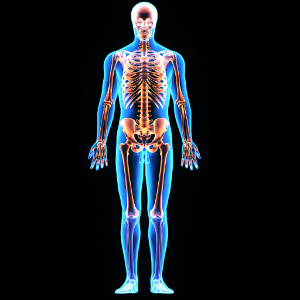 Many people take calcium supplements for bone health. However, this does not significantly reduce their risk of fractures and may even be associated with a range of serious side effects and premature death because calcium from supplements can accumulate in the blood vessel walls and increase the risk of atherosclerosis and heart attacks. A new review article published in Current Osteoporosis Reports highlights this connection. It is also important to be aware that the body’s calcium absorption, distribution, and bone health depend on vitamins C, D, and K2, as well as magnesium.
Many people take calcium supplements for bone health. However, this does not significantly reduce their risk of fractures and may even be associated with a range of serious side effects and premature death because calcium from supplements can accumulate in the blood vessel walls and increase the risk of atherosclerosis and heart attacks. A new review article published in Current Osteoporosis Reports highlights this connection. It is also important to be aware that the body’s calcium absorption, distribution, and bone health depend on vitamins C, D, and K2, as well as magnesium.







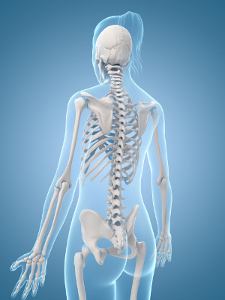 Many people avoid dairy products because they are lactose intolerant, are vegan, or for other reasons. Milk is a good source of nutrients, especially calcium, but you can easily get enough calcium from other food sources. What is more, it appears that vitamin D, vitamin K2, and the calcium/magnesium ratio is even more important than calcium alone for the structure and maintenance of strong bones. Another thing to remember is that sugar, soft drinks, stimulants, and certain types of medicine can disrupt the bone-building processes. Therefore, having strong bones is about a lot more than dairy products and calcium alone. Finally, don’t forget that daily weight-bearing exercise stimulates bone density.
Many people avoid dairy products because they are lactose intolerant, are vegan, or for other reasons. Milk is a good source of nutrients, especially calcium, but you can easily get enough calcium from other food sources. What is more, it appears that vitamin D, vitamin K2, and the calcium/magnesium ratio is even more important than calcium alone for the structure and maintenance of strong bones. Another thing to remember is that sugar, soft drinks, stimulants, and certain types of medicine can disrupt the bone-building processes. Therefore, having strong bones is about a lot more than dairy products and calcium alone. Finally, don’t forget that daily weight-bearing exercise stimulates bone density.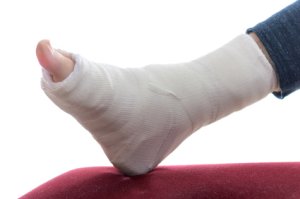 Lack of
Lack of 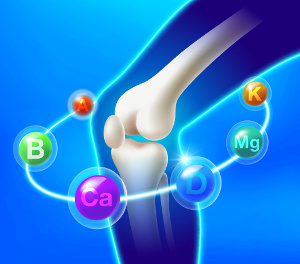
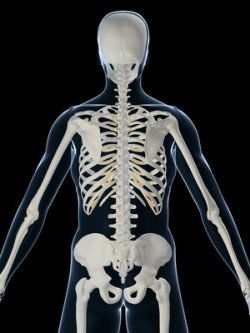 Fragile bones, also known as osteoporosis, is an insidious scourge. Science has its eyes on
Fragile bones, also known as osteoporosis, is an insidious scourge. Science has its eyes on 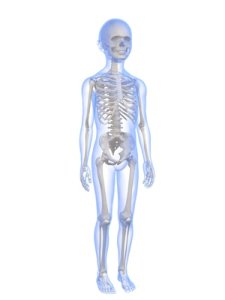 We consume far too much sugar from candy, soft beverages or in the form of concealed sugar in our food. This impairs the body’s uptake and utilization of
We consume far too much sugar from candy, soft beverages or in the form of concealed sugar in our food. This impairs the body’s uptake and utilization of 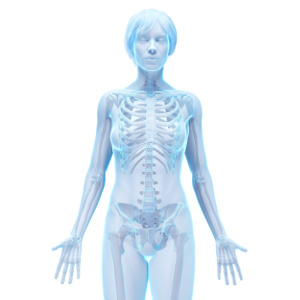
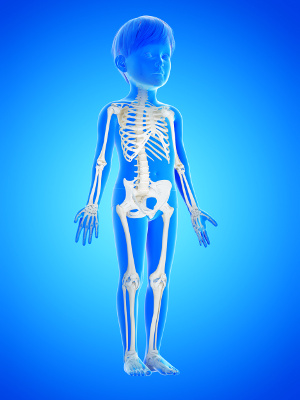

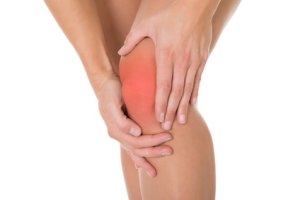 According to researchers, women with weak thighs and hamstrings have an increased risk of developing knee osteoarthritis. Of course, leg muscle exercise is important for preventing this condition, but adequate nutrient intake and maintenance of the right body weight also contribute. For those who are already affected by knee osteoarthritis, glucosamine supplements can be useful. Make sure to choose glucosamine sulfate and to stick with glucosamine supplements that are listed as medical drugs if you want to be sure to obtain the desired effect.
According to researchers, women with weak thighs and hamstrings have an increased risk of developing knee osteoarthritis. Of course, leg muscle exercise is important for preventing this condition, but adequate nutrient intake and maintenance of the right body weight also contribute. For those who are already affected by knee osteoarthritis, glucosamine supplements can be useful. Make sure to choose glucosamine sulfate and to stick with glucosamine supplements that are listed as medical drugs if you want to be sure to obtain the desired effect. "After about one week of taking the Q10 supplement I could feel a huge difference," says 23-year old Alan Piccini, who has been suffering from extreme fatigue and muscle aches ever since he was a child.
"After about one week of taking the Q10 supplement I could feel a huge difference," says 23-year old Alan Piccini, who has been suffering from extreme fatigue and muscle aches ever since he was a child. “Taking capsules with co-enzyme Q10 has freed me of the severe side effects of my cholesterol lowering medicine,” Mrs Franken explains.
“Taking capsules with co-enzyme Q10 has freed me of the severe side effects of my cholesterol lowering medicine,” Mrs Franken explains.